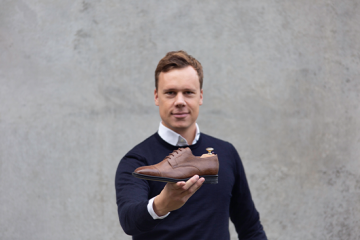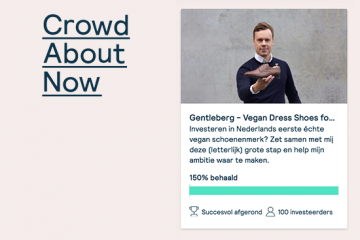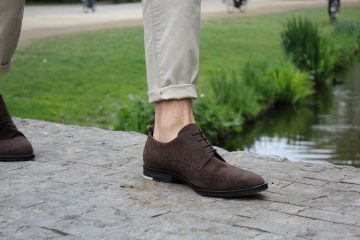A big step in the right direction
Published by Matthijs Berg on
Shoe label Gentleberg introduces vegan dress shoes for the true gentleman
One of the latest trends is a rapid consumer shift towards veganism. If you think this only relates to dieting, you’re wrong. It’s a way of living. And whereas a plant-based lifestyle used to be for the few, this movement is going mainstream. Veganism indicates a philosophy which seeks to exclude all forms of exploitation of animals for food, clothing and any other purpose. In other words, it promotes the development and use of animal-free alternatives for the benefit of humans, animals and the environment. The food industry already embraced this evolution and plant-based restaurants are emerging everywhere. But what are the latest progressions and alternatives when it comes to vegan fashion?
Animal leather is not better
A common misconception is that leather is a by-product of the meat industry and it’s wasteful not to use the residual animal skins for leather production. It is, in fact, an industry on its own which is responsible for slaughtering over a billion animals every year1. The production process contributes to climate change by depleting water sources, fossil fuels and pasture land. Moreover, the leather industry causes deforestation and pollution, threatening ecosystems all around the globe. Whereas animal skins used to be air- or salt-dried, nowadays factories are using toxic chemicals to prevent the leather from decomposing. This is anything but glamorous and by buying leather clothing, accessories and shoes we directly contribute to this disturbing industry.
The vegan revolution
Luckily there is also good news. All around the world people from all ages and subcultures are adapting to a vegan lifestyle. The result: besides the food industry, other businesses shift their focus towards the production of animal-free alternatives on leather, wool and silk. Since consumers are extremely high demanding when it comes to quality of clothing and shoes, companies involved in the production of vegan fashion keep inventing new materials that meet their standards. From PU Microfiber to pineapple and hemp leather; the possibilities are endless.
With these resourceful solutions, the fashion industry welcomes new innovate labels that primarily focus on the production of plant-based, eco-friendly and cruelty-free garments. Furthermore, these brands aim to reduce their share in environmental destruction and greenhouse gas emissions and consciously protect the lives of billions of animals per year. The vegan revolution takes sustainability to a whole new level and strives to change the way we consume. Even by buying clothes, we can now contribute to a better planet.
Quality and design are key
Not only do you help the planet, you will also look incredibly fashionable. These days, there is a huge variety of alternatives that look just as good – or even better – than the “real” deal. The mission of companies involved in the vegan fashion industry isn’t solely about dressing vegans; fashion labels now offer smooth and elegant designs that people buy because they genuinely love the look and feel of the products.
A few well-known international fashion labels are already offering vegan alternatives. Great examples are the recently released vegan version of Adidas’ iconic Stan Smith sneakers designed by Stella McCartney and the world-famous Dr. Martens boots. Can you spot the difference?
If the shoe fits, wear it
Matthijs Berg, a young and passionate Dutch entrepreneur, has chosen to make his vegan lifestyle consistent with his career. The lack of decent options when buying vegan dress shoes, led him to start his own private shoe label Gentleberg. This innovative start-up designs vegan dress shoes for the true gentleman. Three models, three colours; finished with subtle Amsterdam-inspired details in the stitching and soles.
In 2019, Gentleberg will launch its first collection after collecting sufficient funding through the crowdfunding platform Kickstarter. In the meantime, you can already become a solemate and stay up-to-date on the latest business developments by leaving your e-mail address below.
[1] Food and Agriculture Organization of the United Nations



